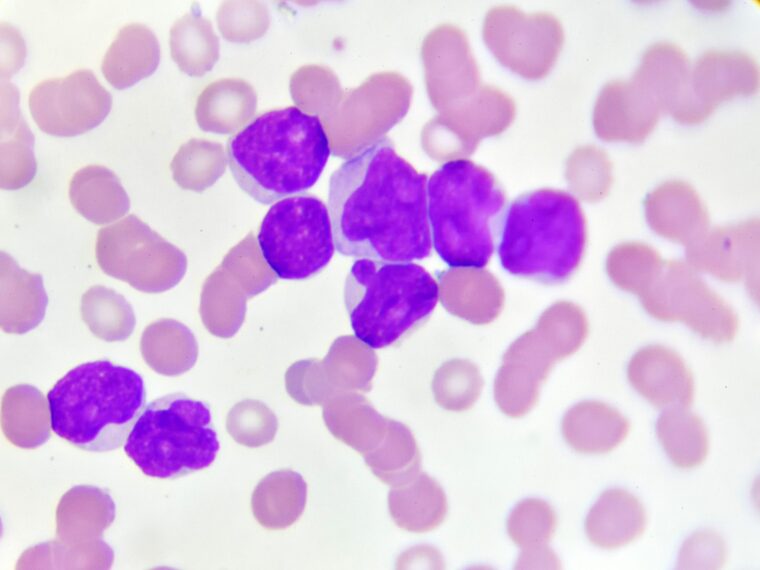New research conducted by the University of Chicago Medicine has revealed that myeloid mutations, traditionally associated with myeloid cancers such as myelodysplastic syndrome (MDS) and acute myeloid leukemia (AML), can also cause high-risk acute lymphoblastic leukemia (ALL). This discovery has significant implications for the treatment of ALL patients with these mutations, as standard chemotherapy has proven to be less effective for them.
ALL is most commonly found in children and young adults aged 18 to 40. While the majority of pediatric and young adult patients respond well to treatment and recover, older adults over the age of 40 have a poorer prognosis. This difference in prognosis led scientists to investigate whether the pathology of ALL differs between these two populations and whether alternative treatment regimens are needed for older adults.
The study, titled “Acute lymphoblastic leukemia with myeloid mutations is a high-risk disease associated with clonal hematopoiesis,” published in Blood Cancer Discovery, conducted a comprehensive genetic profiling of 400 adult ALL cases. The research team, in collaboration with other renowned cancer centers, used leading-edge, single-cell sequencing technologies to characterize the mutations in various cell types at a high resolution.
The sequencing data revealed that 33% of adult ALL patients had myeloid mutations. These patients did not respond well to standard chemotherapy, but newer immunotherapy-based approaches proved to be effective. This highlights the importance of identifying myeloid mutations in ALL to guide therapy for adult patients.
Clonal hematopoiesis of indeterminate potential (CHIP), which refers to the presence of DNA mutations in an individual’s blood cells without an overt blood cancer, was also explored in the study. Most of these mutations involve myeloid genes and accumulate with age. As a result, the prevalence of CHIP is much higher in older adults compared to young adults.
The researchers discovered that myeloid mutations were present in bone marrow samples from myeloma patients years before the diagnosis of ALL. This finding was made through single-cell sequencing of bone marrow samples taken while myeloma was in remission. These findings shed light on the role of myeloid mutations in the development of ALL and the progression of the disease.
Oncologist Caner Saygin, MD, Assistant Professor of Medicine at UChicago Medicine and a corresponding author on the study, noted that myeloid mutations in ALL are associated with an inferior response to standard chemotherapy. As a result, alternative treatment strategies, such as immunotherapy-based approaches, should be considered for ALL patients with these mutations.
This groundbreaking study has expanded our understanding of the genetic factors influencing high-risk acute lymphoblastic leukemia. By identifying and targeting myeloid mutations, researchers and clinicians can develop more effective treatment approaches for adult ALL patients, particularly those over the age of 40.
*Note:
1. Source: Coherent Market Insights, Public sources, Desk research
2. We have leveraged AI tools to mine information and compile it

